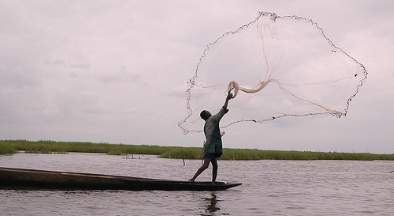Delegates from the two countries met at a GWP workshop on ‘Incorporation of Integrated Water Resources Management (IWRM) into National Development Frameworks.’ Promoting water as a key part of sustainable national development is one of GWP’s major goals in its 2009-2013 Strategy announced on January 27, 2009.
The workshop, in Swaziland February 9-10, was held in response to requests from both governments, and attended by representatives of water ministries, senior economists from the Ministries of Economic Planning, and representatives of GWP in Southern Africa and in Stockholm.
Experiences in incorporating IWRM into National Development Frameworks and PRSPs were shared at the workshop. Principal Economist in Swaziland’s Ministry of Economic Planning and Development, Ms Lonkhululeko Sibanda, commended GWP for the initiative which she said was essential for sustainable development.
In her message to the water sector in Swaziland and other countries, Senior Economist in Swaziland’s Ministry of Economic Planning and Development, Ms Thembie Zwane, stressed that, “The water sector must be assertive, forward-looking and aggressive in promoting the benefits of IWRM. A well co-ordinated and proactive sector strategy will go a long way in meeting national socio economic development objectives of countries.” “This is a wake up call for the water sector in the Southern African Region and beyond,” remarked GWP Southern Africa’s Regional Project Manager, Mr. Andrew Takawira.
Mr. Takawira mentioned that for a long time the water sector had been talking to itself and not actively engaging other key economic sectors such as Mining, Commerce, Agriculture, Energy, Finance and Economic Planning.“We need to actively move and engage key sectors,” Mr. Takawira said.
Representative of the Mozambican Water Department, Ms Anifa Ismail Soma, welcomed the sharing of experiences and highlighted Zambia’s process of integrating IWRM into its Fifth National Development Plan as worth emulating. “I now understand why as the water sector we can not be separate from other sectors, as water is a cross-cutting issue that is influenced by other sectors’ plans. Integration with the National Development Plan is critical as these are all interrelated.”
The Mozambican delegates emphasised that it was important for them to:
1. Review the PRSP II for IWRM-related actions and better understand how those actions would impact on water resources during their implementation
2. Assess impacts of PRSP II programmes on the water sector and identify areas for improvement
3. Involve the Ministry of Economic Planning and Development in the IWRM planning that is on-going
4. Get involved in the different working groups of other water-using and influencing sectors, to better understand their plans and potential impacts on water resources
5. Engage the Ministry of Economic Planning and Development to improve stakeholders’ understanding of the national development planning cycle.
In its action plan, the delegation from Swaziland committed to:
1. Support the establishment of a cross-sectoral water resources management committee to be anchored in the Ministry of Economic Planning and Development
2. Identify the water and IWRM-related actions in the National Development Strategy and PRSP and other water related sector plans, and develop coordinated programmes for implementation as part of the IWRM Plan
3. Incorporate water issues outlined in national development strategies into the IWRM plan and analyze the impacts and consequences on water resources
4. Participate in the working groups of other sectors to better understand the planned programmes that may impact on water resources
5. Develop and implement a collaboration strategy with other sectors
6. Implement awareness campaigns on the importance of water and an IWRM approach in development and implementation of other sector plans
In summing up, a representative of Swaziland’s water department, Ms Emelda Dlamini was optimistic about water taking a central role in the economy. “I am taking with me an important message to the water department. It is important for us to know and understand the contents of National Development Planning documents since they impact and influence budget allocation to the water sector. And as a water sector we need to advise Government on the constraints of water-related development programmes before huge financial resources are spent, only to find that there aren’t enough water resources to meet the demand.”
Engaging other sectors beyond the water sector was noted at the June 2008 African Union Summit in Sharm el Sheikh, Egypt. During the Summit African Heads of States adopted a recommendation for a Pan African Conference between African Water Ministers and the Ministers of Finance.
On February 5, 2009, following up on the Sharm el Sheikh declaration, the African Ministers’ Council on Water (AMCOW),during the 3rd General Assembly of GWPWest Africa in Abidjan, agreed with GWP to work towards a joint meeting this year between African Ministers of Finance and their counterparts in ministries responsible for water.
The workshop was organised by GWP Southern Africa as part of GWP’s Partnership for Africa’s Water Development Programme II which is supported by the Dutch government.
Mozambique and Swaziland took steps toward developing action plans to address water issues in their national development plans and Poverty Reduction Strategy Papers (PRSPs), at workshop, in Swaziland February 9-10 February.
